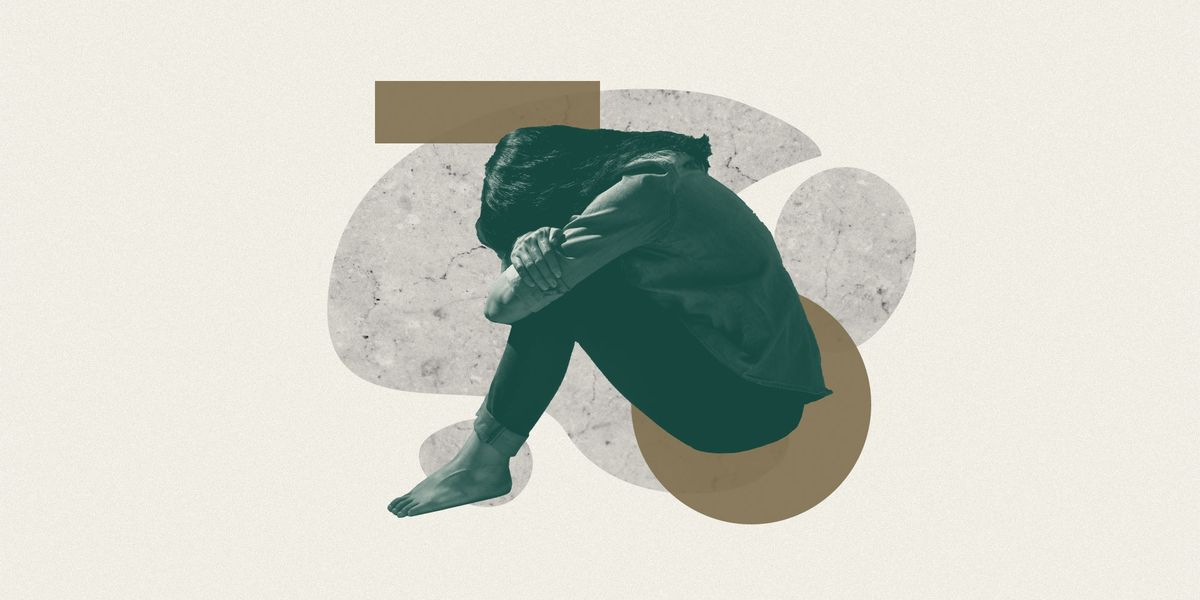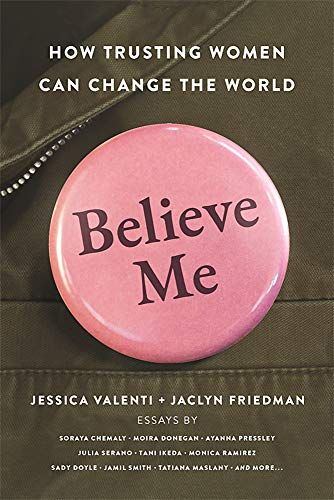I’m a sick person. I go to the doctor a lot. I’m not shy about things that I need, or when something doesn’t feel right, and I usually have the language to articulate what I think is going on. I’m almost forty years old! Yet one of the things that is most baffling to me anytime I seek care is how often something I say is received with skepticism. And it’s not like I’m in there saying something outrageous, no phantom ills that require massive amounts of drugs with a high street value—unless they’re treating sinus infections with heroin these days? I go to the doctor for regular shit, like my irregular shits, and more often than not the response I’m met with is “Really?”
I know that women are all superheroes in our impenetrable armor (read: overpriced full-coverage bras), but we get hurt! The flu knocks us out! Our bones break! And we don’t need to lie about how bad the pain is or where it’s coming from! I have never been sexually assaulted, but I imagine it’s a similar feeling, the one that follows the incredulity if not outright disbelief you face after admitting something that is happening to you. My response to them is always, “Why? Literally who does it hurt to take me at my word?”
One Sunday afternoon I woke up with a stomachache. And not an ordinary stomachache; it felt like there was an alien trapped under my skin: a hot, throbbing alien made of boiling lava. And possibly a mid-sized Chevy sedan. I had never before felt pain as searing and horrible as what was coursing through my gut; it was so bad I couldn’t even zip my jeans. My then-boyfriend wouldn’t come with me to the hospital, because he had big plans to jerk off and play videogames, so two hours later I laid in a sterile white bed under sizzling fluorescent lights totally alone with tubes in my arms and more tubes up my nose, signing a surgery consent form through vision-blurring fear tears because my bowel was obstructed and twisting on itself like a pretzel, and if someone didn’t fix that shit I was probably going to perforate my bowel and die.
At the time I had no idea that I had Crohn’s disease, an inflammatory bowel disease that causes inflammation of the lining of the digestive tract. It can affect any part of the digestive tract, from the mouth to the anus, but is particularly fond of the small intestine. At least mine is, and she is located in my ileum, the end piece of my small intestine that connects it to my large one. Potential side effects: bone loss, eye problems, back pain, arthritis, liver swelling, gallstones, and skin problems. My joints hurt. And my gnarly skin is disgusting. Can’t wait until my eyes fall out of their sockets and my bones shatter every time a strong wind blows.
So Crohn’s is an immunodeficiency disease, which means that the cells in my body that are supposed to protect against infection don’t recognize food and normal, harmless bacteria that are in my intestine. Let’s break it down this way: an innocuous piece of bread is trying to make its way from my mouth and out of my body into a toilet. And it’s pretty smooth cilia sailing, but only until the second it hits these grody old guts. My receptor cells, which should be like “Oh, hello food! What’s up, delicious nutrients?” instead are all “Intruder!!!” and flood my intestines with little soldiering white blood cells armed to the teeth to fight off the enemy. And while they are entrenched in battle, swords and spears and bayonets ablaze, I am in a ridiculous amount of pain (like, childbirth pain), which is typically followed by a torrent of bloody shit (and much humiliated apologizing to whomever I happen to be hanging out with at the time). Years of this gnarly in-fighting (think Capulets and Montagues, Israel and Palestine, Biggie and Tupac) have left my intestines a veritable wasteland of scar tissue.
The first time I limped into the emergency room, clutching my abdomen and trying not to breathe too deeply lest lightning bolts of agony rip through my insides, I was in a lot of pain. And since it was the first time anything like that had ever happened to me, I didn’t have the words to explain what was actually going on. I just cried and cupped my stomach and begged for someone to make it stop. One of the first doctors I saw over the course of that interminably long evening, a young man whom I’d never met, who had the last few years of my body’s history attached to a clipboard in his hand, asked whether I might be exaggerating the severity of my pain. Fudging it a little bit, you know, to get my hands on some morphine.
First of all, it’s not like they give you a whole lot. At least not enough to fake the most brutal intestinal pain of my life. I feel like there are way less dramatic ways to go about getting a couple pain pills! Second, imagine having to convince someone, in an emergency room of all places, that you are hurting. How do you prove that it feels like your internal organs are in a vice, and why is your word not good enough? I’m an expert in one thing: me. You’re gonna have to trust that I know what I’m talking about.
That night, my temperature was elevated and my heart rate was faster than usual, and obviously since I’m some sort of magician I just willed them higher, because it couldn’t possibly be that all my systems were freaking out in response to this blinding pain! There was nothing in my chart to indicate that I’d ever displayed drug-seeking behavior. Why would I lie about it, or why not just give me the benefit of the doubt? I mean, if he had accused me of trying to get a double shot of antihistamines or a bump of beta-blockers then, sure, there might be some evidence to back that up, but at that point I’d never been prescribed anything more exciting than amoxicillin. I vomited into a bedpan as he suggested, again, that my pain might not be as bad as I’d described. He ordered a CT scan and got me some steroids. Later, when the pictures of my insides showed my intestines coiled like a broken slinky, he sheepishly came into the room and assured me that a nurse was on the way with some pain meds. The good kind.
I’ve been battling chronic illness for years, and I’m sorry to report that my experiences in doctors’ offices haven’t improved as much as I’d like on the whole “taking me at my word” front. But I have gotten better at advocating for myself and demanding better care, despite how daunting that can feel. I understand that my pain is valid, that I’m worthy of their best care, and I try to make sure they understand it, too.
So, even if it takes storming into their offices with a bullhorn, here’s hoping that doctors start listening to us when we tell them what we need, and that they take us seriously. Professors and police officers and that faceless drone pushing papers around your company’s HR department, too. We deserve to be believed when we say we are in pain. Then, maybe they can save their side-eyed glances and barely disguised skepticism for the women who walk in saying, “Who, me? Everything’s great! I’m fine!”
Excerpted from Believe Me: How Trusting Women Can Change the World edited by Jessica Valenti and Jaclyn Friedman. Copyright © 2020. Available from Seal Press, an imprint of Hachette Book Group, Inc.

